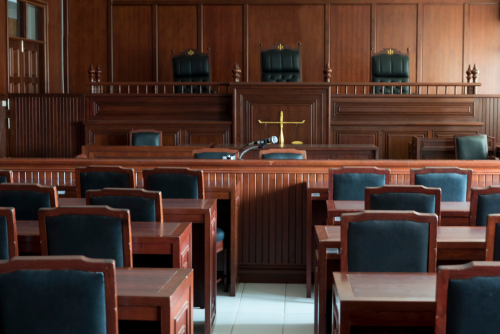Defendants should get initial appearance before judge within 24 hours, report says

Image from Shutterstock.
How long can a person be held in jail before seeing a judge or an attorney? The U.S. Supreme Court has never answered that question, which means that some arrestees are thrust into a “terrifying procedural limbo,” according to a study on the “initial appearance crisis.”
Some people who are arrested are held in jail for days, weeks or even months before they see a judge or an attorney, according to the report by the Deason Criminal Justice Reform Center at the Southern Methodist University Dedman School of Law.
The Crime Report has coverage.
A “dismal patchwork of procedural rules” govern initial appearances, depending on the state. Four states require initial appearances within 24 hours of arrest, while 12 states require the appearances within two to seven days. But more than 30 states have no clear deadlines, requiring only that the initial appearance happen “without unnecessary delay,” “as soon as practicable” or “within a reasonable time.”
Delayed appearances may lead to longer pretrial detention, loss of housing and income, coerced confessions, harm to families, trauma from incarceration, and guilty pleas entered without a lawyer, the report said.
“Lengthy detentions between arrest and a first court appearance mimic the police ‘disappearances’ so common under authoritarian regimes,” the report said. “The Constitution guarantees that no one will be jailed without access to the courts or an attorney. Yet the initial appearance crisis allows people to languish in jail alone, afraid and undefended.”
The report made several recommendations, including that defendants should be provided an initial appearance as soon as possible and never more than 24 hours after arrest. A lawyer should be provided before and during the initial appearance. And legal stakeholders should be held accountable to prevent delay.
The report, funded by Arnold Ventures and the Koch Foundation, is titled Ending Injustice: Solving the Initial Appearance Crisis.



